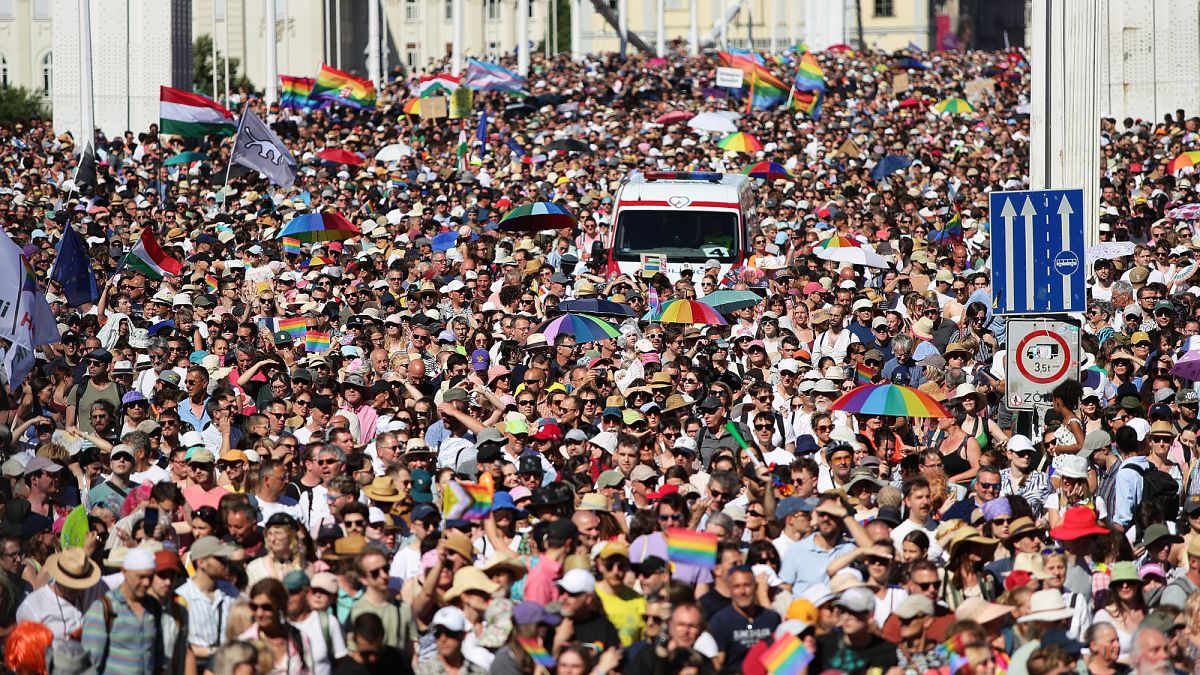

In a world often swept up in the buzz of constant information, recent events in Hungary and Lesotho provide us with a gentle reminder of the enduring power of peaceful assembly and the importance of raising one’s voice against adversity. These stories demonstrate not only the challenges faced by marginalized communities but also their unwavering spirit and resilience in the face of constraints.
On a warm June day, the heart of Budapest came alive as over 100,000 people gathered in a united front at the city’s annual Pride parade. This event, traditionally a vibrant celebration of diversity and the LGBTQ+ community’s contributions, took on a new significance as participants calmly and courageously defied a government ban. The parade wound its way through the streets, embodying a commitment to inclusiveness and acceptance. This year marked the 30th anniversary of Budapest Pride, and despite the obstacles, the turnout was a testimony to the strength of the collective voice striving for equality and understanding.
Prime Minister Viktor Orbán’s administration had imposed a ban on such gatherings, viewing them as contrary to its conservative policies. Yet, neither the looming legal threat nor the presence of restrictive measures could dampen the spirit of those present. The day’s peaceful energy served as a soft yet firm response to policies perceived by many attendees as a crackdown on LGBTQ+ rights. In a cohesive manner, the event highlighted the community’s dedication to fostering an atmosphere of love and acceptance, undeterred by political obstacles.
As the echoes of Budapest Pride resonated through Hungary, a seemingly different yet deeply connected narrative unfolded in Lesotho. There, a young activist named Tšolo Thakeli found himself at the center of attention following his earnest critique of the government’s handling of unemployment, posted via video. His heartfelt appeal for action on youth joblessness sparked significant reactions, drawing the ire of the country’s Prime Minister, Sam Maketane. Though unexpected, the swift visit from armed police on Father’s Day underscored the tensions between grassroots advocacy and governmental oversight.
Thakeli, a father of two, had long been a consistent voice in the call for meaningful employment opportunities for young people in Lesotho. His efforts reflect a broader struggle, one echoed by many around the globe who seek economic reforms and opportunities. This particular episode not only drew attention to the importance of addressing unemployment but also illustrated the challenges activists face when advocating for change in restrictive environments.
While Lesotho’s governmental response was swift and highlighted the friction between civil liberties and state power, it inadvertently opened up a dialogue about the role of youth in shaping their country’s future. As citizens across the world continue to face economic pressures, Thakeli’s experience serves as a poignant example of the power inherent in speaking up for one’s beliefs and the imperative for leaders to engage with constructive criticism.
In both Hungary and Lesotho, these acts of civil engagement emphasize the profound potential of peaceful demonstrations in drawing attention to pressing social issues. Whether it is the commemoration of love and diversity in Budapest or the call for economic justice in Lesotho, the underlying message remains clear: even in the face of opposition, communities can and will continue to advocate for a more inclusive and equitable world. Through their actions, participants in these events remind us of the quiet strength found in unity and the enduring hope for a better tomorrow.
Source: {link}
